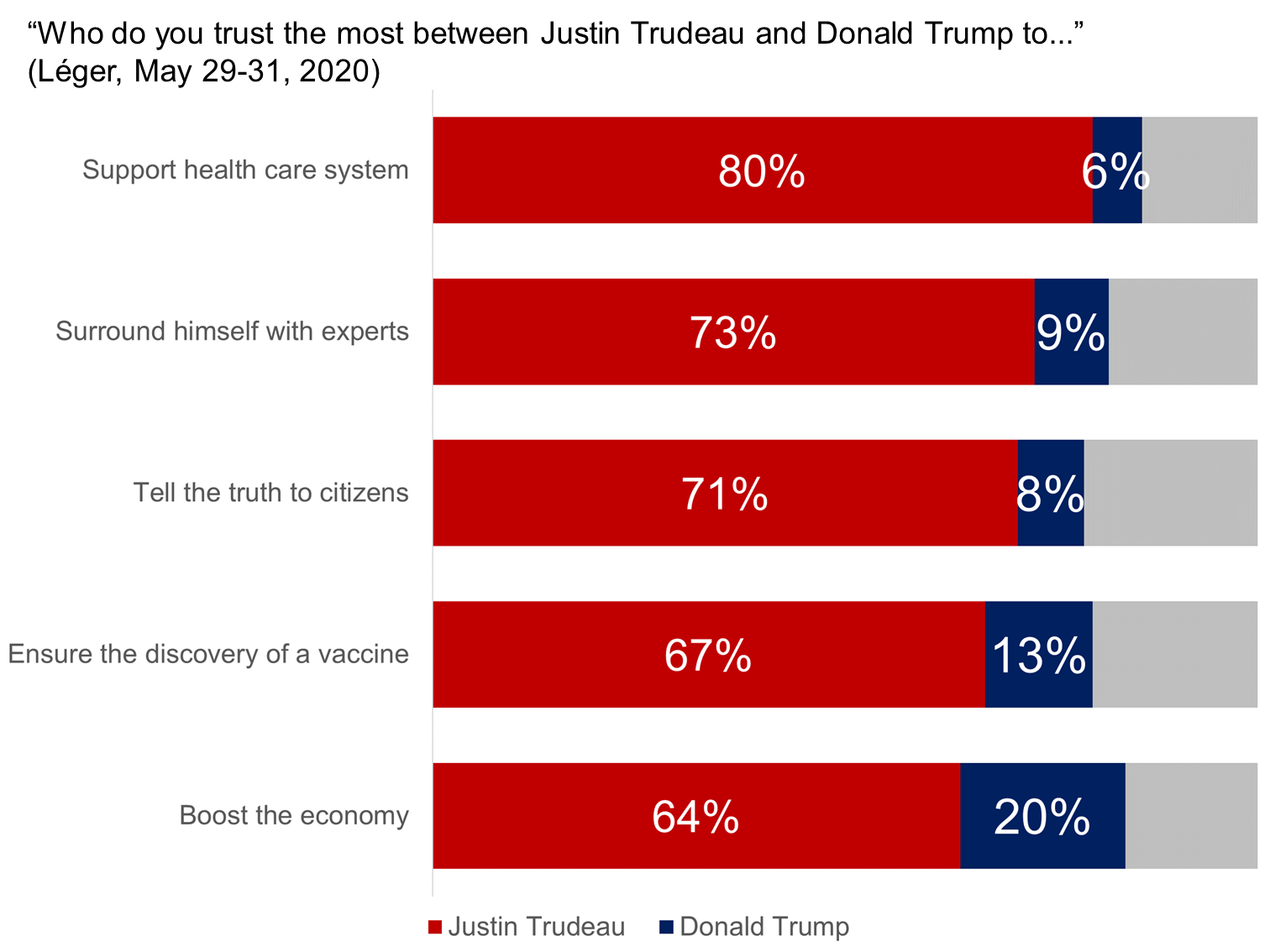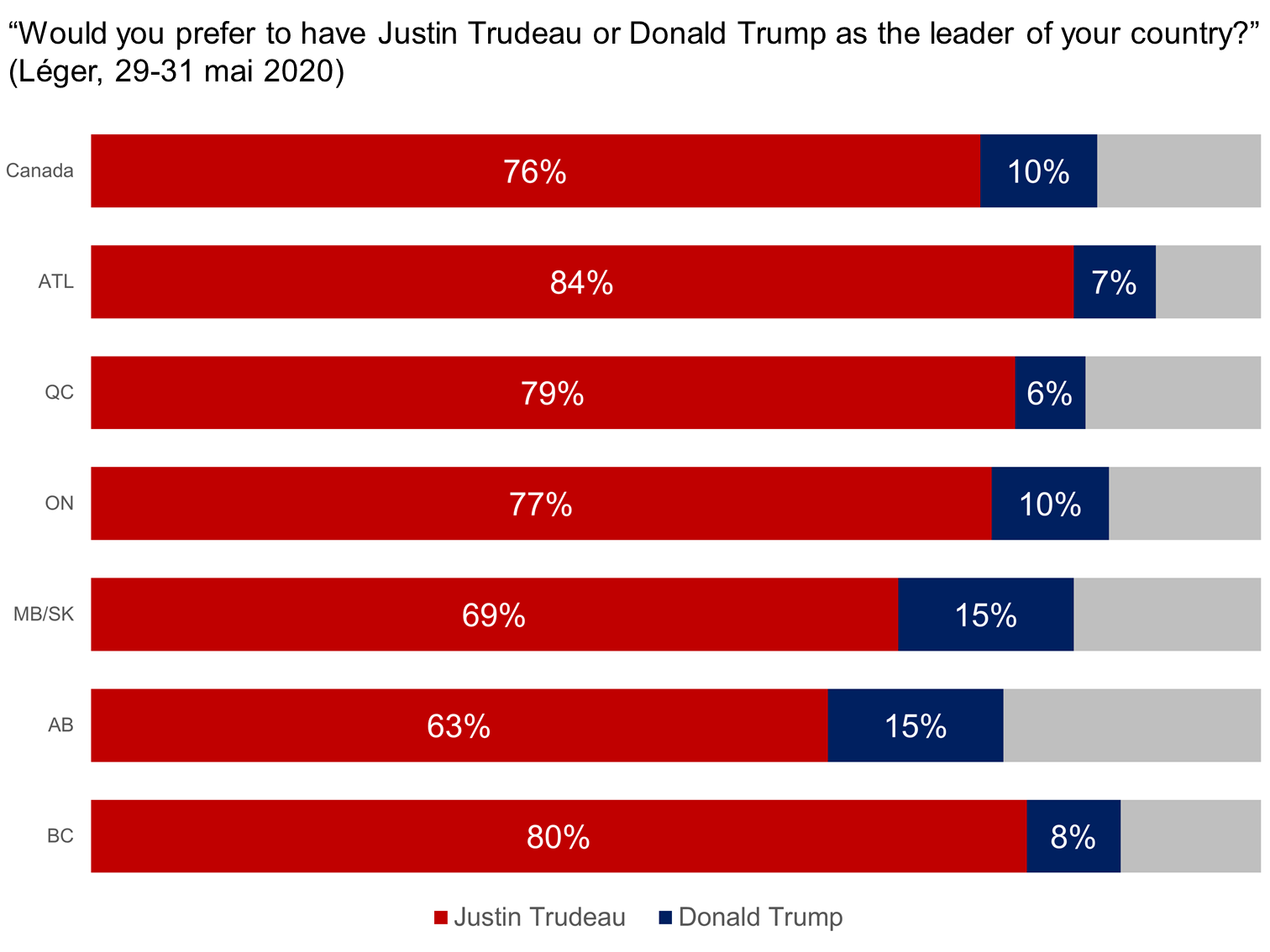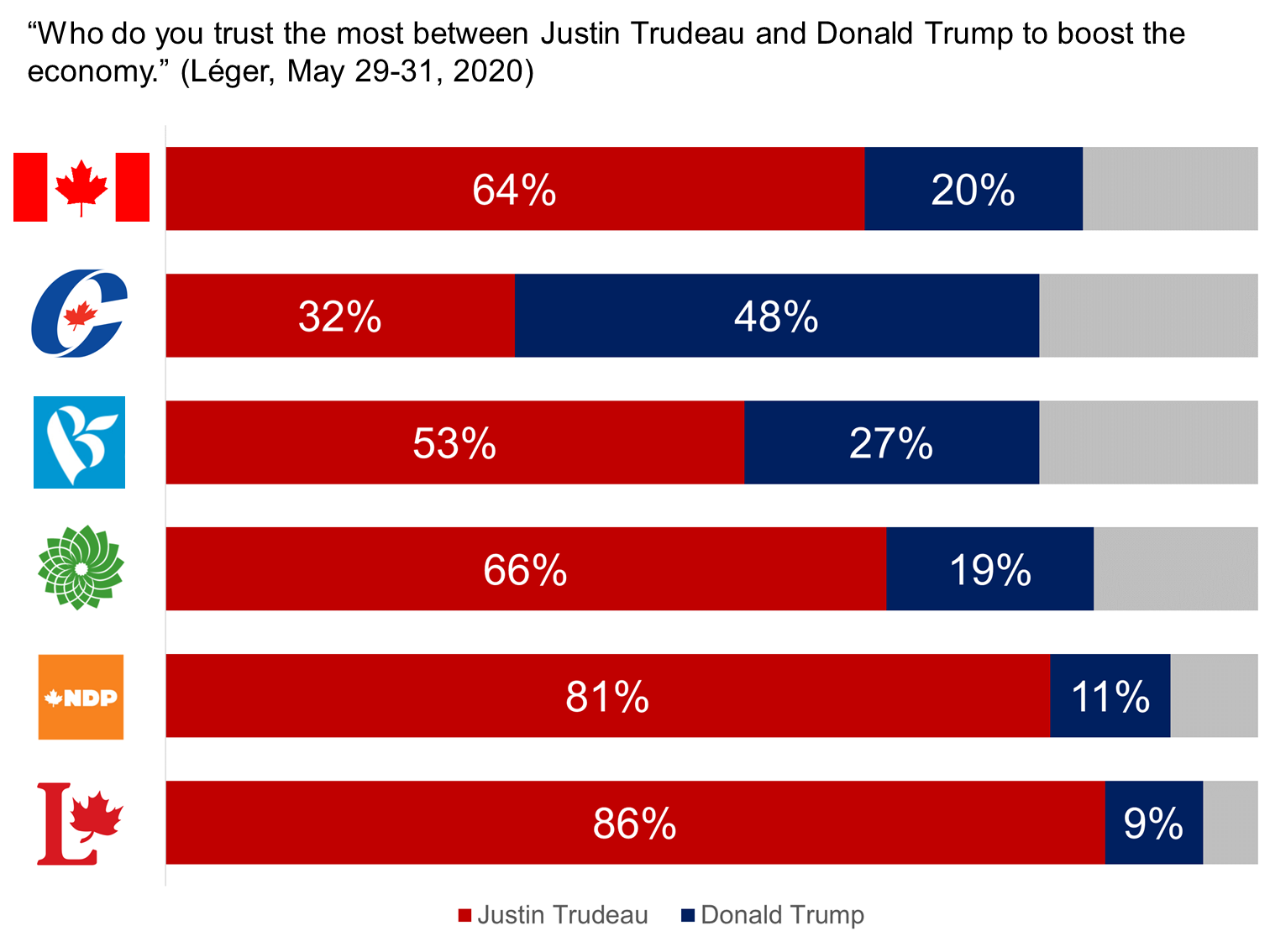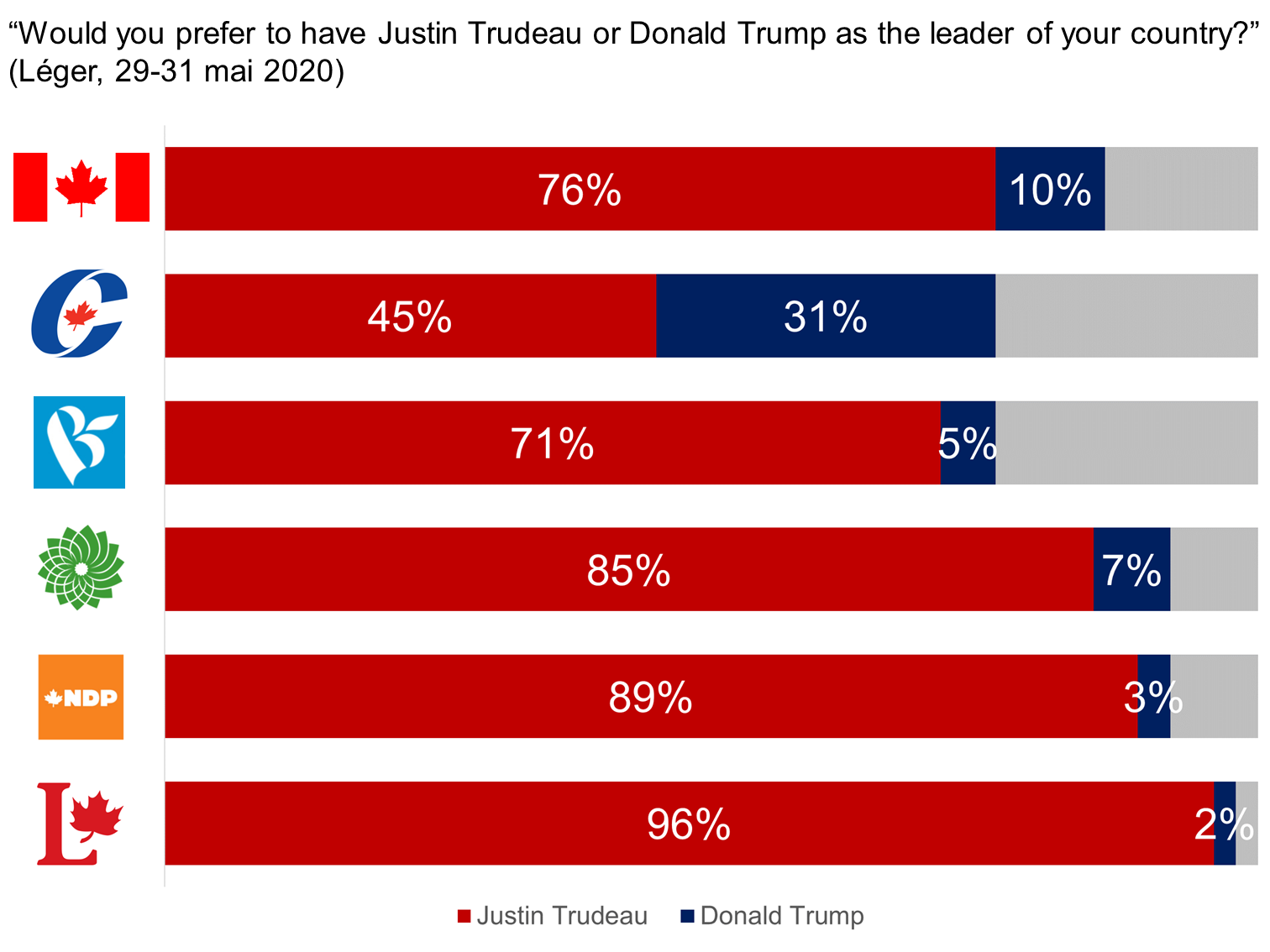Who are the Trump-loving Canadians?
Philippe J. Fournier: Thirty per cent of Conservative supporters would prefer Trump to Trudeau as a leader. That’s a problem for a party needing to widen its base.

Trump walks back to the White House after appearing outside of St John’s Episcopal Church on June 1, 2020 (BRENDAN SMIALOWSKI/AFP via Getty Images)
Share
It would not be a surprise to many Canadians to learn that Donald Trump enjoys exceptionally low approval ratings in this country. While the sentiment is not unanimous, in recent years we have seen poll after poll after poll showing a vast majority of Canadians disapproving of the Republican president. Trump’s cavalier suggestion to use the U.S. Army against its own citizens to crush the turmoil raging in several American cities probably did not help to improve his standing in the eyes of many.
Polls have shown that impressions of president Trump generally fall along partisan lines in the United States. But what about Canadians? From a purely anecdotal stance, we know Trump supporters do exist in Canada (they are generally quite vocal on social media), but what is their actual proportion among the Canadian electorate? The latest weekly update from Léger dove into the matter from many interesting angles.
First, respondents were asked about whom they would trust most between Justin Trudeau and Donald Trump to:
- Support the health care system;
- Surround himself with the best health experts;
- Tell the truth to citizens;
- Ensure the discovery of a vaccine;
- Boost the economy;
Here are the results from the poll’s Canadian sample (n=1,536 respondents):

A clear majority of Canadians trust the Prime Minister far more than they do the American president, which is not necessarily surprising in itself. From the graph above, we notice Trudeau’s lowest score is in regard to the economy (64 per cent). One fifth of Canadians hold more confidence in President Trump than Justin Trudeau to boost the economy. When we breakdown the results of this specific question by voting intentions, we notice that nearly half of Conservative supporters in this country trust Trump over Trudeau (48 per cent to 32 per cent):
Supporters of all other main parties trust Trudeau on the economy more than they do Trump by significant margins.
The poll then asked respondents a remarkably simple, yet intriguing question: “Would you prefer to have Justin Trudeau or Donald Trump as the leader of your country?” Obviously, this hypothetical question is purely “politics-fiction”, but since we know from past polls that Trudeau is a polarizing figure in this country, it is intriguing to see how he would face off against the president—himself profoundly polarizing.
Among the poll’s Canadian respondents, three quarters of Canadians (76 per cent) choose Justin Trudeau over Donald Trump, 10 per cent would rather support Trump over Trudeau, and 14 per cent choose neither or did not answer.
The regional breakdown of the answer shows little variations from one part of the country to another. Even in Alberta and the Prairies, where Trudeau remains generally unpopular, Léger measures that more than 60 per cent of respondents chose the Prime Minister over Trump:

The gender breakdown shows one in seven Canadian men (14 per cent) choose Trump over Trudeau. Only 5 per cent of Canadian women did the same:

Also included in Léger’s poll report were the results to this question according to voting intentions. While it is not surprising that most Canadian Trump supporters are also CPC supporters (both the CPC and the Republican Party are right-of-centre parties after all), about one third of Conservative supporters (31 per cent) answered they would prefer Trump over Trudeau, by far the highest fraction from all other parties:
And perhaps here lies one of the greatest challenges for the CPC since the party’s founding in 2003, and a major test for any future CPC leader: How does one bring all right-of-centre voters—from moderate Red Tories to social conservatives to “Trumpian” populists—all under one tent? In Alberta, Jason Kenney successfully merged the Alberta PC and Wildrose Alliance en route to a majority victory in the spring of 2019, and, at the federal level, Stephen Harper managed to keep a lid on his caucus’ most controversial MPs for close to a decade, so it can be done.
While one could easily picture many Canadian conservatives favouring Ronald Reagan over Pierre Trudeau in the 1980s, or even George W. Bush over Paul Martin in the early 2000s, one wonders how the CPC will deal with supporters who either enjoy or approve Trump’s brand of populism and authoritarian tendencies.
Much has been written about the need for the CPC to expand its base to win future elections, but could it be that this minority of Trump supporters within the CPC makes widening the base of Conservative voters much more difficult?
In last fall’s federal election, the most effective lines of attack for both the Liberals and the Bloc Québécois against Andrew Scheer were centred around Scheer’s social conservative values – the TVA debate itself marked the turning point in Quebec for Yves-François Blanchet, which subsequently annihilated any hopes for Conservative gains in the province. With numbers showing Trump remains highly unpopular in Canada, the CPC has the challenging task of uniting and finding common ground among its many factions. Otherwise, opponents could be quick to attempt rebranding the CPC as “northern Republicans”.

